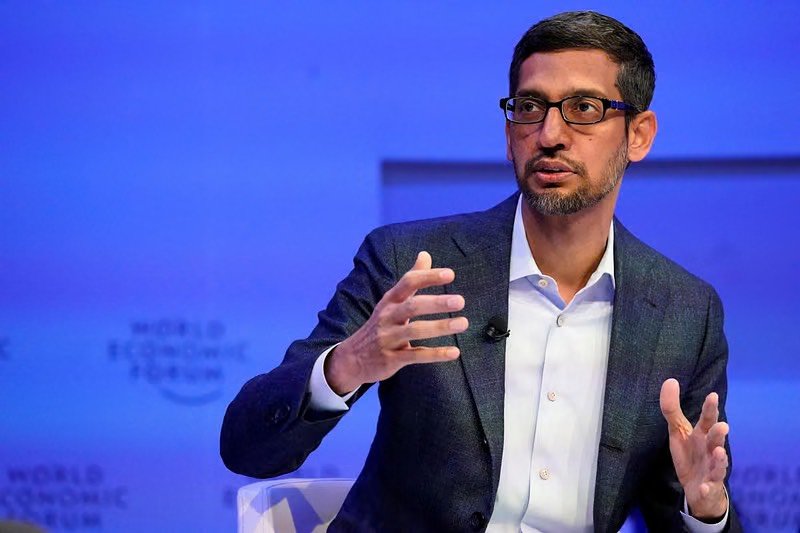In a recent strategy meeting, Google CEO Sundar Pichai made a bold declaration: 2025 will be a “critical” year for the company. The meeting, held on December 18, was not your typical corporate gathering. Pichai and other executives donned festive ugly holiday sweaters, but the tone of the discussion was anything but lighthearted. The focus was on the future, and the stakes were made clear—Google must move faster, innovate smarter, and solidify its position in the rapidly evolving tech landscape, particularly in artificial intelligence (AI).
This announcement comes at a time when the tech industry is undergoing seismic shifts, with AI at the center of it all. Companies like Google, Microsoft, and OpenAI are racing to dominate this transformative technology, and the competition is fierce. Pichai’s remarks underscore the urgency of the moment and the challenges Google faces as it strives to maintain its leadership in the tech world.
In this article, we’ll explore why 2025 is so critical for Google, the company’s key priorities, and how it plans to navigate the challenges ahead.
The Stakes Are High: Why 2025 Matters
During the December 18 meeting, Pichai reportedly told employees, “I think 2025 will be critical. It’s really important we internalize the urgency of this moment and move faster as a company. The stakes are high.”
This statement reflects the broader challenges facing Google and other tech giants in the AI era. The rapid pace of innovation in AI has created both opportunities and risks. On one hand, AI has the potential to revolutionize industries, from healthcare to finance to entertainment. On the other hand, the competition to develop and deploy cutting-edge AI technologies is intense, and falling behind could have serious consequences.
For Google, the stakes are particularly high. The company has long been a leader in AI research and development, but recent advancements by competitors like OpenAI and Microsoft have raised questions about whether Google is moving fast enough to stay ahead.
Key Focus Areas for 2025
Pichai outlined several priorities for the company as it prepares for this critical year. These priorities reflect Google’s commitment to innovation, speed, and consumer impact.
1. Scaling Gemini AI
One of the key areas of focus for Google in 2025 will be scaling its Gemini AI model. Gemini, which powers the Gemini app, has shown “strong momentum,” according to Pichai. However, he acknowledged that there’s still work to be done to close the gap with competitors.
Gemini represents Google’s latest effort to develop a versatile and powerful AI model that can compete with OpenAI’s GPT-4 and other leading AI systems. The model is designed to handle a wide range of tasks, from natural language processing to image generation, and is a cornerstone of Google’s AI strategy.
Pichai emphasized that scaling Gemini on the consumer side will be Google’s biggest focus in 2025. This suggests a push to make AI tools more accessible and impactful for everyday users, a move that could help Google differentiate itself from competitors.
2. Faster Innovation
Another key priority for Google is increasing the speed of innovation. Pichai stressed the need for the company to move faster, signaling a shift toward more agile and responsive development processes.
This focus on speed is particularly important in the context of AI, where advancements are happening at a breakneck pace. Companies that can innovate quickly and bring new products to market faster will have a significant advantage.
3. Consumer-Centric AI
Pichai’s comments also highlight Google’s commitment to making AI more consumer-centric. This means developing AI tools and applications that are not only powerful but also user-friendly and accessible to a wide audience.
By focusing on the consumer side, Google aims to ensure that its AI technologies have a meaningful impact on people’s lives, whether through improved search capabilities, smarter virtual assistants, or innovative new applications.
The AI Race: Where Google Stands
The AI landscape is becoming increasingly competitive, with companies vying for leadership in this transformative technology. To understand where Google stands, it’s helpful to compare its position to that of its main competitors.
| Company | Key AI Product | Market Position |
|---|---|---|
| Gemini AI | Strong momentum, but trailing in some areas | |
| OpenAI | ChatGPT | Leading in conversational AI |
| Microsoft | Copilot (powered by OpenAI) | Strong integration with enterprise tools |
While Google has made significant strides with Gemini, Pichai’s comments suggest that the company recognizes the need to accelerate its efforts to maintain a competitive edge.
The Challenges Ahead
Despite its strengths, Google faces several challenges as it prepares for 2025.
1. Competition from Rivals
One of the biggest challenges for Google is the intense competition from rivals like OpenAI and Microsoft. OpenAI’s ChatGPT has set a high bar for conversational AI, while Microsoft’s integration of AI into its Office suite and other products has given it a strong foothold in the enterprise market.
2. Public Perception and Trust
As AI becomes more integrated into everyday life, public perception and trust will play a critical role in determining the success of AI technologies. Google will need to ensure that its AI tools are not only effective but also ethical and transparent.
3. Regulatory Scrutiny
The growing influence of AI has also attracted the attention of regulators around the world. Google will need to navigate a complex and evolving regulatory landscape to ensure that its AI technologies comply with legal and ethical standards.
Why This Matters
The urgency expressed by Pichai reflects the broader challenges facing tech giants in the AI era. According to a report by Statista, the global AI market is projected to grow from $142.3 billion in 2023 to $309.6 billion by 2026. This rapid growth underscores the importance of staying ahead in the AI race.
For Google, 2025 represents a make-or-break moment to solidify its leadership in AI and ensure its technologies remain relevant in an increasingly competitive market.
The Road Ahead
As Google prepares for 2025, it’s clear that the company is focused on innovation, speed, and consumer impact. By scaling Gemini AI, increasing the speed of innovation, and making AI more consumer-centric, Google aims to position itself as a leader in the AI era.
However, the challenges are significant. From intense competition to regulatory scrutiny, Google will need to navigate a complex and rapidly changing landscape to achieve its goals.
For a deeper dive into Google’s AI initiatives and how they compare to competitors, check out this CNBC report.
As Sundar Pichai said, “The stakes are high.” With 2025 on the horizon, all eyes will be on Google to see how it navigates this critical period and shapes the future of AI.
By focusing on innovation, speed, and consumer impact, Google has the potential to not only maintain its leadership in the tech world but also redefine what’s possible with AI. The next year will be crucial, and the world will be watching.













